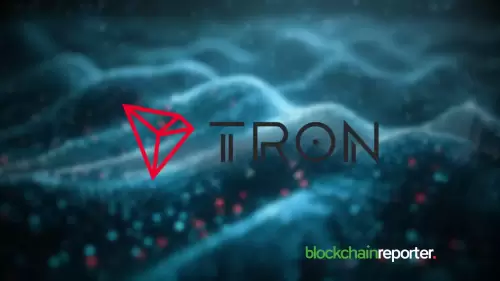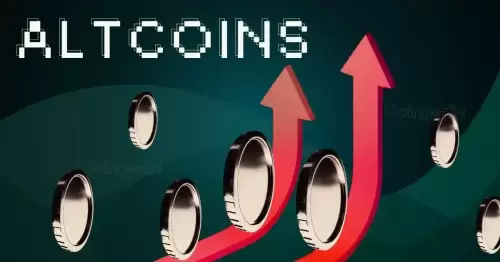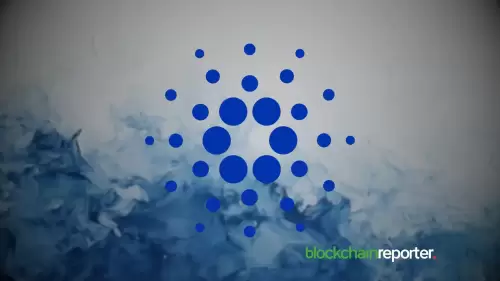 |
|
 |
|
 |
|
 |
|
 |
|
 |
|
 |
|
 |
|
 |
|
 |
|
 |
|
 |
|
 |
|
 |
|
 |
|
Cryptocurrency News Articles
Nicolas Kokkalis, often regarded as the "soul" of Pi Network, has an impressive academic background.
May 26, 2025 at 06:42 pm
Kokkalis, often regarded as the "soul" of Pi Network, has an impressive academic background. He holds a PhD from Stanford University and was the instructor of Stanford's first decentralized applications class, CS359B, in 2018

Konstantin "Stan" Kokkalis, often regarded as the "soul" of Pi Network, is an academic with an impressive background.
Having earned his PhD from Stanford University and serving as the instructor of Stanford's first decentralized applications class, CS359B, in 2018, Kokkalis's work integrates distributed systems and human-computer interaction to bring cryptocurrency to the masses.
This is according to Pi Network's website, which describes Kokkalis as "a strong and long-term believer in the technical, financial and social potential of cryptocurrencies."
It adds that Kokkalis is committed to moving beyond the current limitations of cryptocurrencies and bringing blockchain technology to more people. "With the founding of Pi Network, he aims to accomplish this by improving the current blockchain experience and empowering everyone to create, build and experience the future of online life through a user-centric design philosophy."
Outside of Pi, Kokkalis has co-founded Gameyola, an online gaming platform that won the Facebook Fund Award in 2009. He also served as the CTO of StartX, a Stanford student startup accelerator that has supported over 1,300 companies and whose major investors include Amazon (NASDAQ:AMZN), Google Cloud and British-Swedish pharma giant AstraZeneca (NYSE:AZN).
In 2017 he highlighted StartX's expansion into blockchain acceleration, which led experts to speculate that Pi would ultimately become a cryptocurrency for the StartX ecosystem.
The Digital Biography reported that Kokkalis also mentored Vitalik Buterin, the "father" of Ethereum, on smart contracts in cryptocurrency.
But Kokkalis has remained intensely private. His presence on social media is minimal, with only four posts on his X account, two in 2013 and two from 2021. One of them claims that it is his official account and warns others about impersonators, while another clarifies that he is currently only working at Pi Network and teaching a class at Stanford once a year, stating he is not advising or working with any other projects.
He briefly appeared in a Pi Network app video in June 2022 but has kept a low public profile until his recent appearance at the 2025 Coindesk Consensus event in Toronto on May 16.
"I am not here to talk about technology today; I am here to talk about trust," said Kokkalis. "Together, we are building not just a cryptocurrency, but a global ecosystem."
He highlighted the importance of identity verification in the success of blockchain projects and acknowledged that Pi Network had not yet reached an open network phase. The focus, he said, was not just on becoming open, but doing so correctly, with safeguards against fraud and a platform where Pi could be fully usable.
Although anticipation for Kokkalis's presence at Consensus was high, some in the Pi community expressed disappointment as he did not address the token's value or provide any concrete updates on expanding the ecosystem.
In addition to Kokkalis, Fan plays a key role in Pi Network. A Stanford graduate with a PhD in anthropological sciences, Fan specializes in human behavior and the societal impact of technology.
Pi Network describes Fan's work as "optimizing human-computer interaction and envisioning a future where the platform empowers individuals worldwide to create and contribute to society."
"Chengdiao is building Pi Network to mobilize individuals all over the world to participate and be rewarded for their contributions, and establish an inclusive ecosystem for global citizens to unleash and capture their own agency, and in turn create utilities and productions for society and the world."
McPhillip, the former community leader, has an academic background in political science from Yale University. After graduation, McPhillip chose a career in nonprofit work with Bridgespan, managing educational and workforce development funds across the U.S.
He later co-founded the Stanford Blockchain Collective, one of the largest blockchain groups at the university, before joining Pi Network in 2018.
In 2020 he filed a lawsuit against Kokkalis and Fan, alleging unfair removal from the company and mishandling of financial resources. He also accused that the pair, being married, brought personal conflicts into the workplace, creating a toxic environment, according to crypto news site BeInCrypto.
The dispute was settled in July 2023, though the details of the resolution remain undisclosed. Since then, he has continued his work in the crypto sector, founding a new project called Knomad.
Pi Network was marketed as a platform allowing users to earn free cryptocurrency by tapping a lightning icon on its mobile app daily. Vietnam is among its most active markets.
The project has been controversial, taking nearly six years to launch its mainnet before finally allowing users to transfer Pi to exchanges for trading on Feb. 20 this year.
Despite claiming to have entered the open network phase, Pi is still considered incomplete by industry
Disclaimer:info@kdj.com
The information provided is not trading advice. kdj.com does not assume any responsibility for any investments made based on the information provided in this article. Cryptocurrencies are highly volatile and it is highly recommended that you invest with caution after thorough research!
If you believe that the content used on this website infringes your copyright, please contact us immediately (info@kdj.com) and we will delete it promptly.





























































